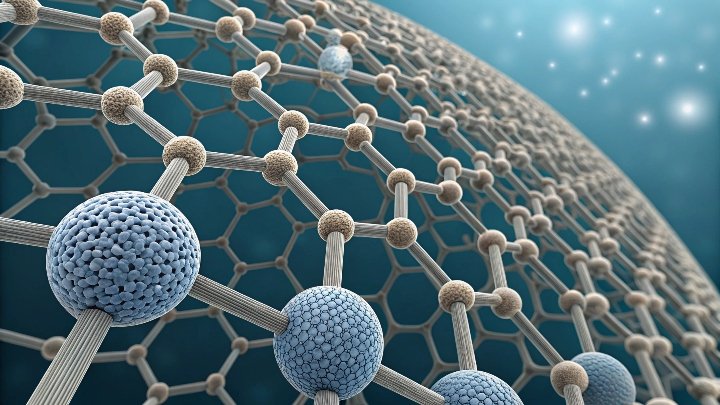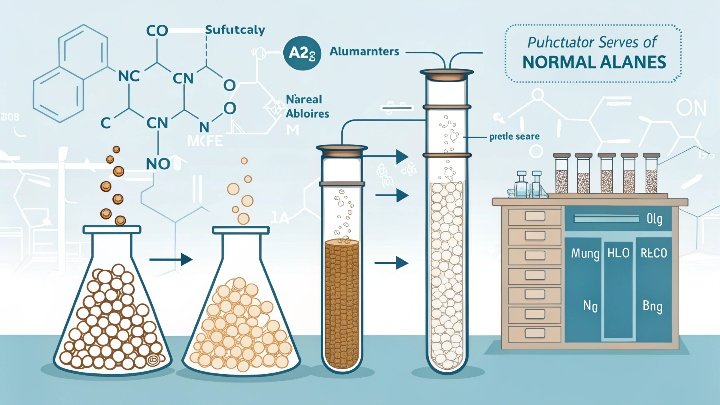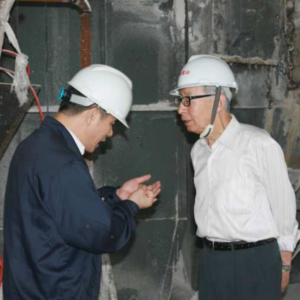The alkane separation industry is undergoing a transformation, thanks to the advancement of molecular sieve technology. But how exactly are these materials revolutionizing large-scale production?
Molecular sieves are pivotal in alkane purification, playing a key role in increasing both yield and purity. Their precision and efficiency have allowed the production of millions of tons of alkanes annually, meeting growing global demands.
If you’ve ever wondered how industries manage to produce such vast amounts of alkanes without compromising on quality, molecular sieves are the answer. Let’s dive into how these materials have redefined alkane separation.
The Role of Molecular Sieves in Alkane Purification: Unlocking Efficiency and Scalability?
Alkane purification at large scales requires precision. Molecular sieves offer the exact solution needed for high-yield operations. But what makes them so effective?
Molecular sieves improve alkane purification by selectively adsorbing specific molecules. This leads to greater purity and efficiency, which is crucial in large-scale operations aimed at meeting global demand.
At the heart of alkane separation, molecular sieves function by separating molecules based on size and polarity. This selective adsorption is key to ensuring that only the desired alkanes are retained while impurities are removed. By doing so, they make the process more efficient and scalable.
In an industrial setting, where large volumes are processed, this efficiency is critical. Without molecular sieves, the purification process would require more energy, time, and cost. They reduce these factors significantly, allowing producers to operate at a much larger scale. Furthermore, as molecular sieves have become more sophisticated, their applications have expanded. From simply separating hydrocarbons to refining the overall process of alkane production, these materials have demonstrated their versatile value.
For industries dealing with high-volume production, scalability is a key factor. Molecular sieves, due to their precision and efficiency, allow processes to be scaled up without sacrificing output quality. With the demand for alkanes soaring globally, this scalability is more important than ever.
In addition to improving scalability, the reduction in energy consumption is another major benefit. Energy costs often form a significant portion of operational expenses. By improving the efficiency of alkane purification, molecular sieves reduce the energy required for each batch, which in turn lowers the overall cost of production. This not only makes the process more sustainable but also more economically viable for large-scale operations.
How Molecular Sieves Improve Yield and Quality in High-Volume Alkane Production?
Yield and quality are always the top priorities in any industrial process. So, how do molecular sieves contribute to these vital factors in alkane production?
Molecular sieves enhance yield and quality by ensuring that only the desired alkanes are extracted, minimizing the inclusion of impurities. This boosts both the quantity and purity of the final product, making the process more efficient.
In alkane production, achieving both high yield and quality is often a challenge. The smallest impurities can lower the quality of the product, leading to losses in both economic terms and customer satisfaction. Molecular sieves address this challenge by ensuring only the specific molecules of interest are retained during the separation process.
For example, molecular sieves in the alkane separation process are capable of selectively adsorbing heavier compounds that may otherwise contaminate the final product. By doing so, they increase the yield of pure alkanes and reduce waste. This level of precision is what allows the production of high-quality products in large volumes.
On top of that, these materials help maintain a consistent quality. In traditional separation methods, variations in product quality can occur due to shifts in temperature or pressure. Molecular sieves, however, can operate under varying conditions while still maintaining their selective adsorption capacity, which ensures stable output quality throughout the process.
Additionally, by improving yield and quality, molecular sieves significantly contribute to the economic efficiency of alkane production. With a higher yield of the desired product, manufacturers can meet market demand without resorting to additional processing steps or waste. This directly correlates to reduced costs and greater profitability for producers.
For example, in the case of paraffin extraction, the ability to achieve high purity levels means that the final product requires less refining, thus lowering overall costs. Molecular sieves, through their ability to target specific molecules with great precision, offer a pathway to more sustainable and cost-effective alkane production.
Future Trends: The Evolving Impact of Molecular Sieves on the Alkane Separation Market?
As we look to the future, the role of molecular sieves in alkane separation is bound to evolve further. But what does the future hold for these materials in industrial applications?
The future of molecular sieves in alkane separation looks promising, with continuous advancements in their design and functionality. These developments will play a key role in making alkane production even more efficient and environmentally friendly.
Dive deeper Paragraph:
The future of molecular sieves in alkane separation is bright. With ongoing research and development, these materials are becoming even more efficient and specialized. One of the key trends is the development of custom molecular sieves that target specific alkanes or impurities. This type of precision design will allow even greater control over the separation process, further enhancing yield and quality.
Another important trend is the shift towards more sustainable production methods. As global industries face increased pressure to reduce their carbon footprints, molecular sieves are poised to play a crucial role. By reducing energy consumption, minimizing waste, and improving the overall efficiency of alkane production, molecular sieves align with the industry’s growing focus on sustainability.
Advancements in material science may also bring about molecular sieves that can operate under more extreme conditions, increasing their applicability to a wider range of industries. This could open up new possibilities for the separation of alkanes in previously unreachable scenarios, making these materials even more indispensable.
Furthermore, as regulations around environmental impact tighten, industries will increasingly turn to solutions like molecular sieves that offer a more eco-friendly alternative to traditional methods. With their ability to improve process efficiency while reducing waste and energy consumption, molecular sieves are well-positioned to become a standard in the push toward greener production practices.
Conclusion
Molecular sieves are reshaping alkane separation by enhancing yield, quality, and scalability. As the demand for alkanes grows, these materials will continue to evolve, driving innovation and sustainability in the industry.





